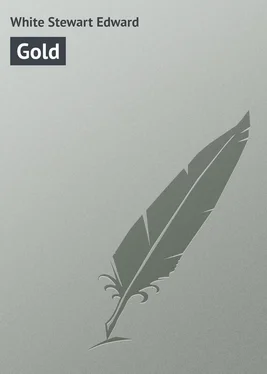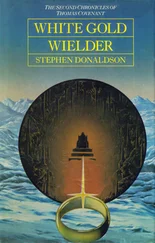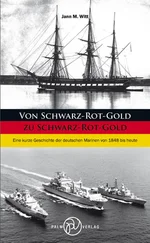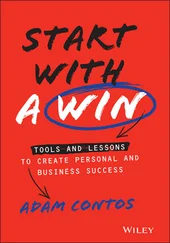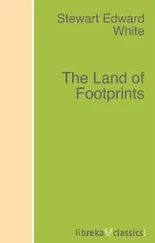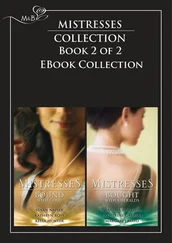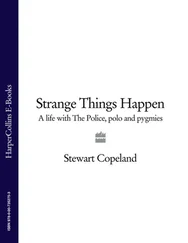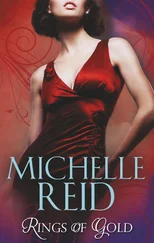Stewart White - Gold
Здесь есть возможность читать онлайн «Stewart White - Gold» — ознакомительный отрывок электронной книги совершенно бесплатно, а после прочтения отрывка купить полную версию. В некоторых случаях можно слушать аудио, скачать через торрент в формате fb2 и присутствует краткое содержание. Жанр: foreign_prose, foreign_adventure, на английском языке. Описание произведения, (предисловие) а так же отзывы посетителей доступны на портале библиотеки ЛибКат.
- Название:Gold
- Автор:
- Жанр:
- Год:неизвестен
- ISBN:нет данных
- Рейтинг книги:4 / 5. Голосов: 1
-
Избранное:Добавить в избранное
- Отзывы:
-
Ваша оценка:
- 80
- 1
- 2
- 3
- 4
- 5
Gold: краткое содержание, описание и аннотация
Предлагаем к чтению аннотацию, описание, краткое содержание или предисловие (зависит от того, что написал сам автор книги «Gold»). Если вы не нашли необходимую информацию о книге — напишите в комментариях, мы постараемся отыскать её.
Gold — читать онлайн ознакомительный отрывок
Ниже представлен текст книги, разбитый по страницам. Система сохранения места последней прочитанной страницы, позволяет с удобством читать онлайн бесплатно книгу «Gold», без необходимости каждый раз заново искать на чём Вы остановились. Поставьте закладку, и сможете в любой момент перейти на страницу, на которой закончили чтение.
Интервал:
Закладка:
They addressed us eagerly, asking a thousand questions concerning the news of the outside world. We could hardly answer them in our desire to question in return. Were the gold stories really true? Were the diggings very far away? Were the diggings holding out? What were the chances for newcomers? And so on without end; and the burden always of gold! gold! gold!
We were answered with the enthusiasm of an old-timer welcoming a newcomer to any country. Gold! Plenty of it! They told us, in breathless snatches, the most marvellous tales–one sailor had dug $17,000 in a week; another man, a farmer from New England, was taking out $5,000 to $6,000 daily. They mentioned names and places. They pointed to the harbour full of shipping. “Four hundred ships,” said they, “and hardly a dozen men aboard the lot! All gone to the mines!” And one man snatching a long narrow buckskin bag from his pocket, shook out of its mouth to the palm of his hand a tiny cascade of glittering yellow particles–the Dust! We shoved and pushed, crowding around him to see this marvellous sight. He laughed in a sort of excited triumph, and tossed the stuff into the air. The breeze caught it and scattered it wide. A number of the little glittering particles clung to my rough coat, where they flashed like spangles.
“Plenty more where that came from!” cried the man; and turned away with a reckless laugh.
Filled with the wine of this new excitement we finally succeeded in getting ashore in one of the ship’s boats.
We landed on a flat beach of deep black sand. It was strewn from one end to the other by the most extraordinary wreckage. There were levers, cogwheels, cranks, fans, twisted bar, and angle iron, in all stages of rust and disintegration. Some of these machines were half buried in the sand; others were tidily laid up on stones as though just landed. They were of copper, iron, zinc, brass, tin, wood. We recognized the genus at a glance. They were, one and all, patent labour-saving gold washing machines, of which we had seen so many samples aboard ship. At this sight vanished the last remains of the envy I had ever felt for the owners of similar contraptions.
We looked about for some sort of conveyance into which to dump our belongings. Apparently none existed. Therefore we piled most of our effects neatly above high tide, shouldered our bundles, and started off up the single street.
On either side this thoroughfare stood hundreds of open sheds and buildings in the course of construction. Goods of all sorts, and in great quantity, lay beneath them, wholly or partially exposed to the dust and weather. Many unopened bales had been left in the open air. One low brick building of a single story seemed to be the only substantial structure in sight. We saw quantities of calicos, silks, rich furniture, stacks of the pieces of knock-down houses, tierces of tobacco, piles of all sorts of fancy clothing. The most unexpected and incongruous items of luxury seemed to have been dumped down here from the corners of the earth, by the four hundred ships swinging idly at anchor in the bay.
The street was, I think, the worst I have ever seen anywhere. It was a morass of mud, sticky greasy mud, of some consistency, but full of water-holes and rivulets. It looked ten feet deep; and I should certainly have ventured out on it with misgivings. And yet, incongruously enough, the surface ridges of it had dried, and were lifting into the air in the form of dust! This was of course my first experience with that common California phenomenon, and I was greatly astonished.
An attempt had been made to supply footing for pedestrians. Bags of sand had been thrown down, some rocks, a very few boxes and boards. Then our feet struck something soft and yielding, and we found we were walking over hundred pound sacks of flour marked as from Chili. There must have been many hundred of them. A man going in the opposite direction sidled past us.
“Cheaper than lumber,” said he briefly, seeing our astonishment.
“I’d hate to ask the price of lumber,” remarked one of our ship’s companions, with whom–and a number of others–we were penetrating the town. This man carried only a very neat black morocco satchel and a net bag containing a half dozen pineapples, the last of a number he had brought from the Isthmus. The contrast of that morocco bag with the rest of him was quite as amusing as any we saw about us; though, of course, he did not appreciate that.
We walked on flour for a hundred feet or so, and then came to cook stoves. I mean it. A battalion of heavy iron cook stoves had been laid side by side to form a causeway. Their weight combined with the traffic over them had gradually pressed them down into the mud until their tops were nearly level with the surface. Naturally the first merry and drunken joker had shied the lids into space. The pedestrian had now either to step in and out of fire boxes or try his skill on narrow ledges! Next we came to a double row of boxes of tobacco; then to some baled goods, and so off onto solid ground.
We passed many people, all very intent on getting along safely. From the security of the shed stores the proprietors and an assorted lot of loafers watched proceedings with interest. The task of crossing the street from one side to the other, especially, was one not lightly to be undertaken! A man had to balance, to leap, to poise; and at last probably, to teeter back and forth trying to keep his balance like a small boy on a fence rail, until, with an oath of disgust, he stepped off into the slime.
When we had gained the dry ground near the head of the street we threw down our burdens for a rest.
“I’ll give you ten dollars for those pineapples!” offered a passerby, stopping short.
Our companion quickly closed the bargain.
“What do you think of that?” he demanded of us wide-eyed, and in the hearing of the purchaser.
The latter grinned a little, and hailed a man across the street.
“Charley!” he yelled. “Come over here!”
The individual addressed offered some demur, but finally picked his way across to us.
“How do you like these?” demanded the pineapple purchaser, showing his fruit.
“Jerusalem!” cried Charley admiringly, “where did you get them? Want to sell ’em?”
“I want some myself, but I’ll sell you three of them.”
“How much?”
“Fifteen dollars.”
“Give ’em to me.”
The first purchaser grinned openly at our companion.
The latter followed into the nearest store to get his share of the dust weighed out. His face wore a very thoughtful expression.
We came shortly to the Plaza, since called Portsmouth Square. At that time it was a wind-swept, grass-grown, scrubby enough plot of ground. On all sides were permanent buildings. The most important of these were a low picturesque house of the sun-dried bricks known as adobes, in which, as it proved, the customs were levied; a frame two-story structure known as the Parker House, and a similar building labelled “City Hotel.” The spaces between these larger edifices was occupied by a dozen or so of smaller shacks. Next door to the Parker House stood a huge flapping tent. The words El Dorado were painted on its side.
The square itself was crowded with people moving to and fro. The solid majority of the crowd consisted of red or blue shirted miners; but a great many nations and frames of minds seemed to be represented. Chinese merchants, with red coral buttons atop their stiff little skullcaps, wandered slowly, their hands tucked in capacious sleeves of the richest brocade. We had seen few of this race; and we looked at them with the greatest interest, examining closely their broad bland faces, the delicate lilacs and purples and blues of their rich costumes, the swaying silk braided queues down their backs. Other Chinese, of the lower castes, clad in blue canvas with broad bowl-shaped hats of straw on their heads, wormed their way through the crowd balancing baskets at the ends of poles. Rivalling the great Chinese merchants in their leisure, strolled the representatives of the native race, the Spanish Californians. They were darkly handsome men, dressed gloriously in short velvet jackets, snowy ruffles, plush trousers flaring at the bottom, and slit up the side of the leg, soft leather boots, and huge spurs ornamented with silver. They sauntered to and fro smoking brown-paper cigarettos. Beside these two, the Chinese and the Californians, but one other class seemed to be moving with any deliberation. These were men seen generally alone, or at most in pairs. They were quiet, waxy pale, dressed always neatly in soft black hat, white shirt, long black coat, and varnished boots. In the face of a general gabble they seemed to remain indifferently silent, self-contained and aloof. To occasional salutations they responded briefly and with gravity.
Читать дальшеИнтервал:
Закладка:
Похожие книги на «Gold»
Представляем Вашему вниманию похожие книги на «Gold» списком для выбора. Мы отобрали схожую по названию и смыслу литературу в надежде предоставить читателям больше вариантов отыскать новые, интересные, ещё непрочитанные произведения.
Обсуждение, отзывы о книге «Gold» и просто собственные мнения читателей. Оставьте ваши комментарии, напишите, что Вы думаете о произведении, его смысле или главных героях. Укажите что конкретно понравилось, а что нет, и почему Вы так считаете.
